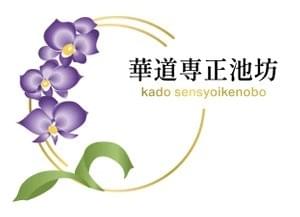
The Legacy of Sensho Ikenobo
Discover the origins of our school, rooted in classical tradition and guided by a vision for artistic evolution.
History of Kado Sensho Ikenobo
Yudo Ishibashi, the founder of the Kado Sensho Ikenobo school of Ikebana, was born in 1880 in the Saga prefecture of Japan. He was the second son of Tokuemon Ishibashi, a Samurai. At the age of five, he adopted his mother's family name and was known thereafter as Yado Moroizumi. His early interests included,Kado, flower arranging, and Chado, tea ceremony. He was an adept student of both. Yudo studied flower arranging at the Ikenobo school and became very well-known around Kyushu.
In 1918, he was appointed to the head of the Fukuoka area for the Ikenobo School. In 1921 he became in charge of all prefecture in Kyushu and became active in school politics as well as in flower arranging. In 1928, he started teaching at the Honbu, Ikenobo School headquarters and was appointed to the positions of Kamkacho, the head of the arrangement section. In this roll, he paid a great effort to spread knowledge of the Ikenobo School. At this time, the Ikenobo School only taught the classsical forms of arrangement and did not teach the modern forms.
Moroizumi attempted to persude ikenobo's Iemoto, headmater, to approve the teaching modern forms and also to allow more democratic process within the school by including a board of directors. This was veto by the Iemote. Yado Moroizumi then ask permission to start his own school which was granted and the school offically opened in 1930 and he became know as Sensho Ikenobo. Sensho Ikenobo pass away in 1950 and his son then became the new Iemoto. Yoriko Moroizumi is the current Iemoto, the great granddaughter of Yudo Moroizumi. (paraphsed from Ikebana of Japan by Nansui Nagase and the school's Japanese website)
Sensei Margy Metzler
Margy is a skilled practitioner of the Urasenke tea ceremony, guiding participants through the profound philosophy of Chado, the Way of Tea. She introduces the core principles of Wa (Harmony), Kei (Respect), Sei (Purity), and Jaku (Tranquility), illustrating how these values enrich daily life. Margy also connects these principles to her floral arrangements, demonstrating how the art of tea and flowers intertwine to foster mindfulness and grace.Margy guides for large groups and intimate gathering. For information on fees for her demonstrations, please contact Margy directly, as specific contact details and pricing are not publicly available.
Join Our Ikebana Community
Sign up with your email address to receive updates on workshops, demonstrations, and special events in the art of Ikebana and the Japanese Tea ceremony.
